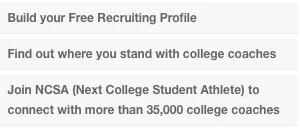Even Kyle Wiltjer’s Smooth Transfer Shows Flaws in System
Popular opinion seems to be that Kyle Wiltjer’s departure from Kentucky is how transfers are supposed to work. It was a quick and amicable parting, with both sides wishing each other well. A far cry from some of the more contentious transfers over the last few years. But even a transfer that goes well in the current system shows why that system needs reform.
Kentucky is being praised for not restricting Wiltjer’s transfer. But the reason Wiltjer is free to stay or go wherever he wants shows the problem:
“He’s handled this well,” [Kentucky head coach John] Calipari said. “He can come back. He knows that. He called me, and he was honest about it.”
ESPN’s Andy Katz had a more general thought:
The problem with too many of these transfer/blocking situations is one side or both sides aren’t dealing straight with each other on the timing of the departure and the intentions of both parties.
Under the current system though, “straight dealing” on the part of a player normally means having to go hat-in-hand to the head coach and explaining why he or she wants to leave. The coach often times has unilateral power to accept or reject that explanation. If the coach so much as suspects some ulterior motive for the manner or timing of a player’s departure, he can start refusing permission to contact.
The counterargument is that student-athletes should handle these situations like adults. And adults sit down and hash out their differences. But when such an informal process has a high chance of breaking down, there should be an easily accessible and more formal way to handle the situation.
Cases like what happened at Rutgers, Rice, UW-Green Bay, and Oakland over the past couple of years highlight why dealing directly with the coach is a bad idea. Even if players only believe they were treated unfairly, abused, or discriminated against, they should not be put in a situation where they have to either lie to the coach about why they want to leave or make an accusation to the person against whom they are lodging the accusation.
If the player/coach relationship is still good enough that the player can deal with the coach directly, great. But that should be backed up with a way for the player to avoid dealing with the coach at all, using intermediaries like the compliance office, the faculty athletics representative, or some other campus department. And how or when players choose to tell the institution they want to leave should not change what happens after that.


